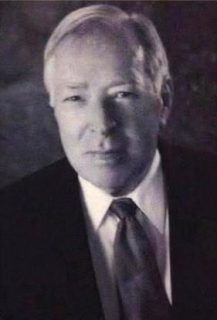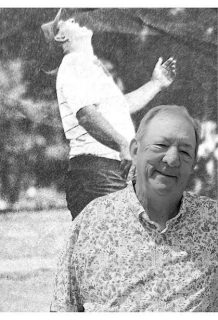Legislature should be lauded for rejecting bad betting bill
Published 12:00 pm Monday, April 8, 2019

- Michael Johnson
Unfortunately, the Kentucky Standard editorial board responded to the defeat of Kentucky House Bill 175 (the so-called “sports wagering” bill) by mischaracterizing The Family Foundation’s position as “incorrectly couching this as a values and morals struggle” and criticizing our “outsized influence … on our state legislature.” (The Daily News reprinted the Kentucky Standard’s editorial March 25.)
Stan Cave, our attorney and a former Kentucky legislator, testified before the Kentucky House Licensing, Occupations and Administrative Regulation Committee on Feb. 13. He raised two important legal considerations for legislators to be aware of and asked legislators to address two important policy concerns.
Trending
First, he made the reasonable request that legislators make sure that the bill actually did what they thought it did.
Though presented as a “sports wagering” bill by proponents, Cave explained that the bill would actually legalize wagering on nonsporting events such as the Emmys and Oscars while also allowing wagering on other items of chance such as the outcome of a coin toss. After our testimony, the bill’s sponsor admitted that the 175-page bill did, in fact, include this language and would even allow wagering on what color tie the president would wear.
Second, Cave pointed out that Section 226 of Kentucky’s state Constitution, the highest state law, only authorizes three forms of gambling: charitable, the state lottery and pari-mutuel horse racing.
That means any expansion of gambling in the commonwealth requires a constitutional amendment, which must be ratified by the voters. A simple piece of legislation, such as HB 175, lacks authority to override the Kentucky Constitution.
Other attorneys agree with this interpretation.
Third, legislators were informed that the U.S. Department of Justice released a January memo interpreting the Federal Wire Act to prohibit use of the wires and wire facilities to facilitate gaming and wagering on gambling events.
Trending
The bill’s sponsor acknowledged “complications” due to the Federal Wire Act and expressed he would work to convince the federal government that it is time to rethink the act.
Fourth, Cave asked legislators to ensure government transparency and integrity to avoid ever repeating the embarrassment of Boptrot, the FBI’s corruption investigation that implicated more than a dozen Kentucky legislators with regards to horse racing legislation.
HB 175 lacked the several necessary elements to ensure this.
The Kentucky Horse Racing Commission, or any other agency granted authority over this gambling expansion, should be subject to the Executive Branch Ethics Code. Surprisingly, the commission is not currently covered by it.
Gaming operators and applicants should be prohibited from paying the fees of a public agency’s consultant.
That may sound obvious, but Kentucky Auditor Mike Harmon wrote an October letter finding that the racetracks and game manufacturers paid the Kentucky Horse Racing Commission’s consultant over $845,000 to opine that historical horse racing machines were pari-mutuel wagering. The commission also violated Section 45A of the State Procurement Code.
In order to provide adequate oversight, legislators should ensure they have the ability to find out what is going on.
We learned this the hard way during our eight-year court case. We have discovered that the commission (the regulator) and racetracks will claim an attorney-client privilege with each other so that no one is entitled to know what they discuss. We’ve also learned that they will often claim information is proprietary and therefore not subject to any open records requests.
Given that HB 175 would have legalized far more than it claimed, violated the Kentucky Constitution, threatened to break federal law and failed to ensure government transparency and integrity, the Family Foundation is thankful for the legislators who actually heard our concerns and declined to enact a very bad bill.






